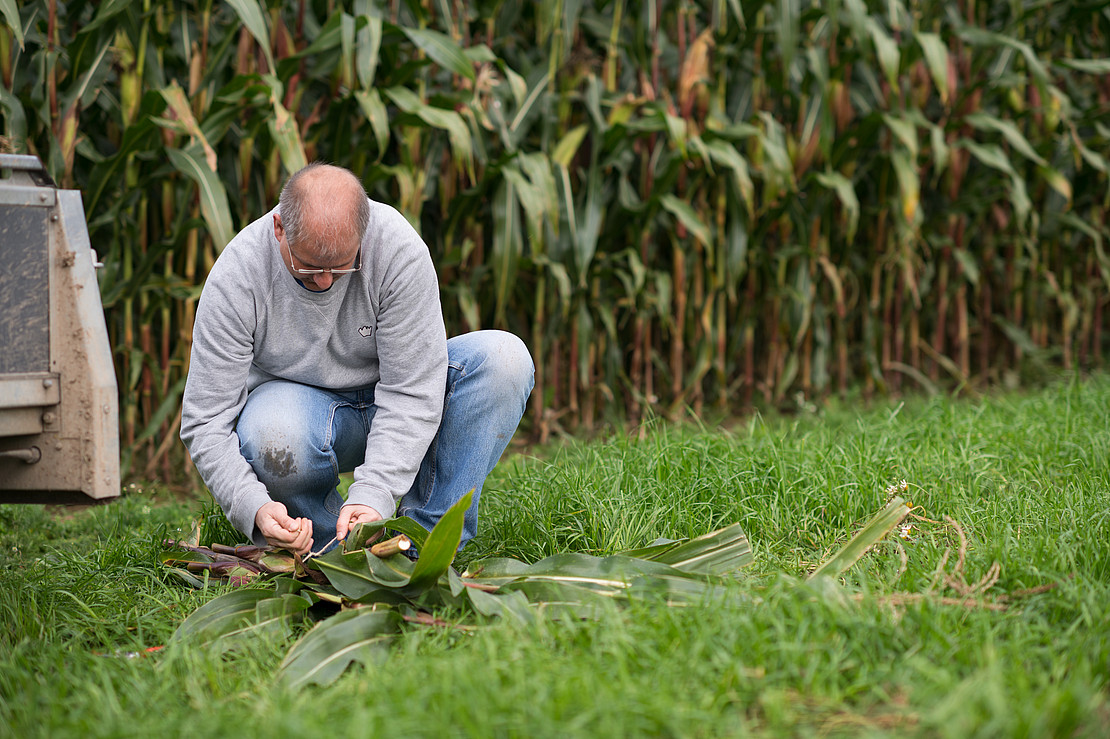This page contains automatically translated content.
Reallabore für die Agrarwende
 Image: Blafield.
Image: Blafield.Das Hessische Ministerium für Wissenschaft und Kunst (HMWK), das Leibniz-Zentrum für Agrarlandschaftsforschung (ZALF), die Universität Kassel, die Justus-Liebig-Universität Gießen (JLU) und die Hochschule Geisenheim University (HGU) luden am 7. 9. Akteure aus Landwirtschaft, Umwelt- und Naturschutz zu einer Dialogveranstaltung in die Hessische Landesvertretung Berlin ein. Ziel der Veranstaltung war, die Chancen und Bedeutung einer stärkeren Zusammenarbeit von Forschung, Agrarbetrieben, Verbänden, Politik und Zivilgesellschaft in landwirtschaftlichen Reallaboren zu diskutieren.
Reallabore bieten das Potenzial, innovative und nachhaltige landwirtschaftliche Produktionsverfahren schnell zu etablieren und so die notwendige Agrarwende voranzutreiben. Forschung und Praxis können in ihnen neue Technologien, Anbaupraktiken und Geschäftsmodelle gemeinsam unter realen Bedingungen entwickeln und testen. Ayse Asar, Staatssekretärin im hessischen Ministerium für Wissenschaft und Kunst eröffnete die Dialogveranstaltung gestern mit einem Grußwort: "In Zeiten des Klimawandels und wachsenden Verlustes an Biodiversität ist ein Umdenken in der Landwirtschaft unverzichtbar. Mit einem Konzept zur Einrichtung eines Innovationszentrums für Agrarsystemtransformation (IAT), welches sich aktuell in der Begutachtungsphase befindet und die Arbeit in Realloren substantiell untersetzen kann, legen wir die wissenschaftliche Grundlage für die Agrarwende in Hessen. Drei Universitäten - Gießen, Geisenheim und Kassel - kooperieren künftig im engen Zusammenspiel mit dem Leibniz-Zentrum für Agrarlandschaftsforschung (ZALF) in Brandenburg. Erforscht wird wie Weinbau nachhaltiger oder Landwirtschaft ökologischer werden kann. Zum Einsatz kommen dabei bundesweit erstmals sogenannte Reallabore. Hier wird nicht nur theoretisch gedacht, sondern gleich praktisch auf dem Feld erprobt und umgesetzt. Mehr Transfer zwischen Wissenschaft und Praxis gibt es nicht. Das Thema Reallaborforschung steht auch im Fokus des heutigen Thementags. Über das neue Format reden wir gemeinsam mit den Vertreterinnen und Vertretern aus Forschung, Landwirtschaftsverbänden sowie Umwelt- und Naturschutzorganisationen."
Innovationen beschleunigen und langfristig forschen
Vertreterinnen und Vertreter aus Forschung, Landwirtschaftsverbänden, sowie Umwelt- und Naturschutzorganisationen diskutierten gestern in Berlin darüber, wie Reallaborforschung zu einer nachhaltigeren Landwirtschaft beitragen kann. Die Gäste debattierten, welche Chancen und welchen Nutzen diese Form der Zusammenarbeit bietet, wie Hürden überwunden und Projekte gelingen können. "Der Agrar- und Ernährungssektor muss Handlungsempfehlungen zum Umgang mit dem Klimawandel, dem Verlust der Biodiversität und dem Bedarf einer wachsenden Weltbevölkerung an bezahlbaren Nahrungsmitteln entwickeln. Mit Reallaborforschung können relevante Erkenntnisse gemeinsam mit den Betrieben und Beratung entwickelt und breit umgesetzt werden“, so Dr. Ute Williges vom Landesbetrieb Landwirtschaft Hessen während der Veranstaltung.
Reallabore können dabei unterstützen, neue Produktionssysteme, die robuster gegenüber Klimaveränderungen sind, und gleichzeitig die Umwelt schonen, schneller in die Praxis zu bringen. Prof. Frank Ewert, Wissenschaftlicher Direktor des ZALF und Professor für Pflanzenbau erläutert ihre Besonderheit gegenüber bisherigen Forschungsprojekten: „In der Reallaborforschung kann umfassend, über einzelne Disziplinen hinweg, sowie langfristig an neuen Anbausystemen geforscht werden. Sie verbindet Grundlagenforschung mit der Anwendung“. Prof. Michael Wachendorf, Leiter des Fachgebiets Grünlandwissenschaft und Nachwachsende Rohstoffe und Vizepräsident der Universität Kassel betont: „Um die Landwirtschaft für die jetzt schon spürbaren Auswirkungen des Klimawandels zu rüsten, müssen Praxis und Wissenschaft eng und langfristig zusammenarbeiten.“ Der Praktiker Ralf Remmert, Geschäftsführer des Landwirtschaftsbetriebs Priegnitzer Landschwein mahnte darüber hinaus an: „Die Agrartransformation ist eine gesamtgesellschaftliche Aufgabe - vom Produzenten bis zum Verbraucher“.
Die Agrarwende gemeinsam voranbringen
Die Gastgeber HMWK und ZALF vertreten eine hessisch-brandenburgische Forschungsinitiative, im Kern bestehend aus Universitäten und Forschungseinrichtungen beider Länder. Bereits im November 2022 hatten die Partnerorganisationen zu einem parlamentarischen Abend geladen, um mit Vertreterinnen und Vertretern aller Bundestagsfraktionen die Zusammenarbeit von Forschung und Politik in der Reallaborforschung zu sondieren. Gestern ging es darum, die Stimmen der landwirtschaftlichen Praxis und der Umweltverbände zu hören.